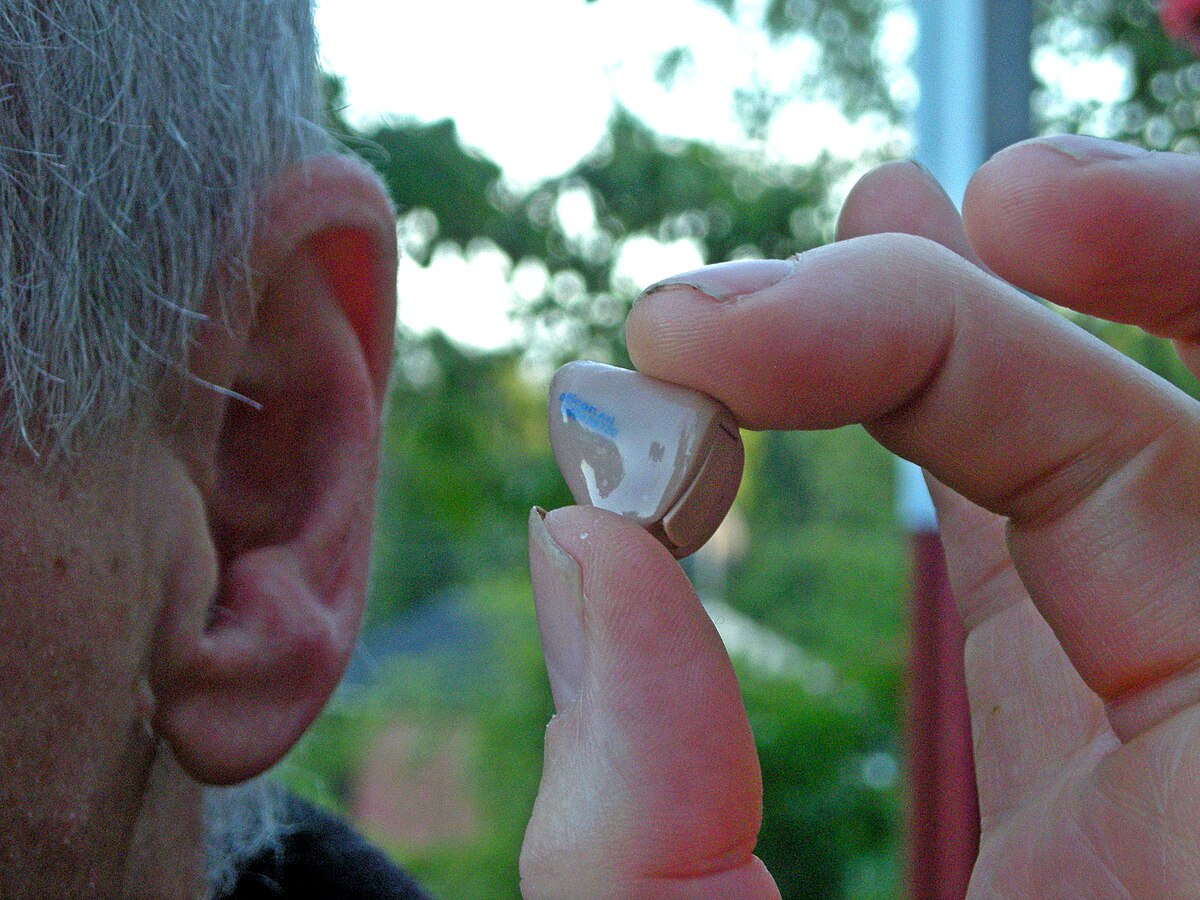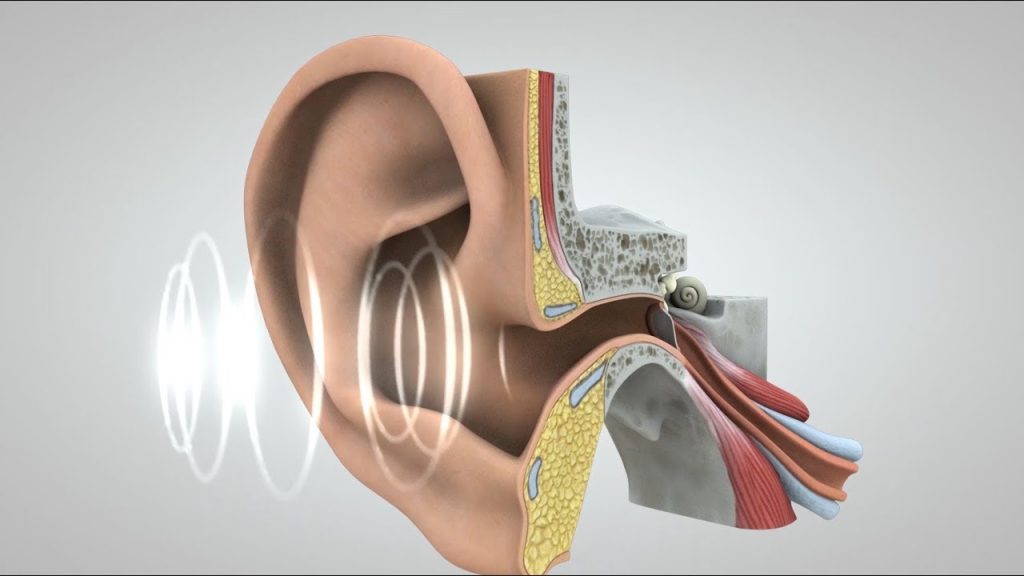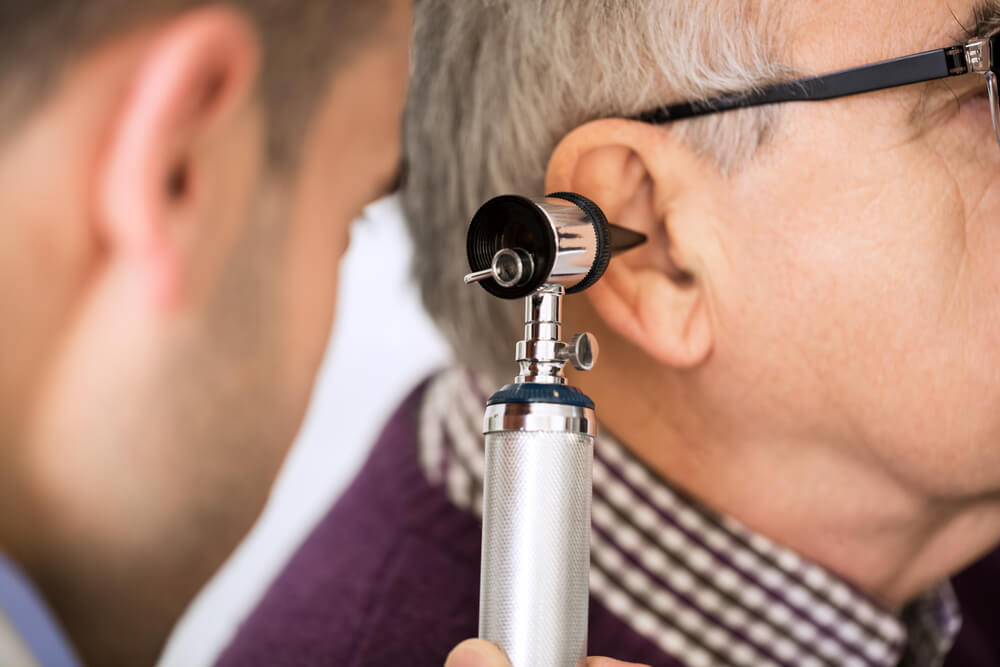Ear care is essential for maintaining healthy ears. Doctors can provide expert advice on how to keep your ears in good condition.
By adopting a lifestyle that promotes ear health, you can prevent various ear problems from arising. We will explore the importance of ear care, the advice provided by doctors, and the lifestyle changes you can make to keep your ears healthy and functioning optimally.
Whether you are looking for tips on cleaning your ears or want to learn about the common signs of ear infections, this guide will provide you with all the necessary information to ensure the well-being of your ears. So, let’s dive in and discover the best practices for ear care.

Credit: en.wikipedia.org
Importance Of Ear Health
Optimal ear health is crucial for overall well-being and quality of life. It affects our ability to communicate and enjoy the sounds around us. By taking proper care of our ears, we can prevent numerous ear problems and potential complications.
- Keep your ears clean and dry by gently wiping the outer ear with a soft cloth.
- Avoid inserting any objects, such as cotton swabs or bobby pins, into the ear canal as it can damage the delicate structures and push earwax deeper.
- Protect your ears from loud noises by wearing earplugs or earmuffs in noisy environments and avoiding prolonged exposure to excessive noise.
- Practice good hygiene by washing your hands regularly to reduce the risk of infection.
- Be mindful of water getting trapped in your ears while swimming or showering; tilt your head to the side and gently pull on the earlobe to help drain the water.
- Seek medical attention if you experience persistent ear pain, hearing loss, dizziness, or any other concerning symptoms.
By prioritizing ear health and incorporating these simple practices into our daily routines, we can ensure that our ears remain healthy and function optimally.
Common Ear Problems
Ear infections can have a significant impact on our overall well-being. These infections can occur at any age but are most common in children. They often cause pain, discomfort, and even temporary hearing loss. It’s crucial to be aware of the signs and symptoms of ear infections so that appropriate treatment can be sought.
Untreated ear infections can lead to complications such as middle ear effusion, wherein fluid accumulates in the middle ear. This can result in persistent hearing loss and affect speech development in children. In severe cases, chronic ear infections can cause perforation of the eardrum or damage to the delicate structures of the ear.
Hearing loss can be caused by numerous factors, including exposure to loud noise, aging, ear infections, and certain medical conditions. It’s important to take preventive measures, such as using ear protection in noisy environments, to reduce the risk of hearing loss. Regular hearing check-ups with an audiologist can help detect any issues early on.
Identifying Ear Care Needs
When it comes to ear care, it is essential to be aware of symptoms that indicate the need for medical attention. If you experience severe pain in the ears that lasts for more than a day or have a sudden loss of hearing, it is important to seek medical advice. Moreover, if you notice any discharge from the ears or a persistent ringing sound, it may indicate an underlying issue that requires attention. Additionally, if you have recurring ear infections or suffer from dizziness and balance problems, consulting a doctor is necessary to determine the underlying cause and provide appropriate treatment.
In order to assess your ear health, there are a few self-assessment checks you can perform. Regularly check for earwax build-up, as excessive amounts can lead to discomfort and affect your hearing. Using a warm washcloth, gently clean the outer part of your ears without inserting anything into the ear canal. Moreover, pay attention to any changes in your hearing, such as muffled sounds or difficulty understanding speech, as this could be an indication of an issue that requires professional evaluation.
Tips For Sound Ear Health

Ear health is incredibly important and there are several ways to ensure you are taking care of your ears properly. Cleaning your ears safely is crucial to avoiding damage. Make sure to use gentle methods such as using a soft cloth or tissue to clean the outer part of your ears. Avoid inserting any objects into your ears, as this can cause harm.
Noise can have a negative impact on your hearing, so it’s important to take steps to protect your ears from noise. Avoid loud environments whenever possible, and if you can’t, make sure to wear earplugs or earmuffs. Additionally, be mindful of the volume levels when using headphones or listening to music.
Recognizing allergies affecting ear health is another key aspect. Keep an eye out for symptoms such as itching, swelling, or excess earwax production. If you suspect allergies are impacting your ear health, consult with a healthcare professional who can provide guidance and treatment options.
| Tips for Sound Ear Health |
|---|
| Cleaning Your Ears Safely |
| Protecting Your Ears from Noise |
| Recognizing Allergies Affecting Ear Health |
Doctors’ Ear Advice
Regular check-ups with the right ear specialist are essential for maintaining ear health. When it comes to your ears, it is important to choose a qualified professional who specializes in ear care. An ENT (ear, nose, and throat) specialist, also known as an otolaryngologist, is the right expert to consult for any ear-related issues.
An ENT specialist is trained to diagnose and treat a wide range of ear conditions, including hearing loss, ear infections, and Tinnitus. They can also provide guidance on preventive measures to maintain ear health. Regular check-ups with an ENT specialist can help ensure early detection of any potential problems and provide appropriate treatments.
During your visit, the ENT specialist will conduct a thorough examination of your ears, which may include a visual inspection, hearing tests, and other diagnostic procedures if necessary. They will also provide personalized advice on ear care, tailored to your individual needs.
Remember, your ears are an important sensory organ, and taking care of them is crucial. By choosing the right ear specialist and scheduling regular check-ups, you can actively maintain your ear health and prevent any potential complications.
Lifestyle Factors Impacting Ear Health
Eating a healthy diet is essential for maintaining good ear health. Incorporating foods rich in nutrients like omega-3 fatty acids, vitamin D, and antioxidants can help protect the ears from damage caused by oxidative stress. Regular exercise promotes proper blood circulation, which is vital for maintaining the health of the ear structures. It also aids in reducing the risk of conditions like diabetes and heart disease, which can negatively impact ear health. Managing stress is crucial as chronic stress can lead to inflammation in the body and affect the ears. Practice stress-relief techniques such as meditation, deep breathing exercises, or engaging in activities that you enjoy to support healthy ears.
Preventive Measures For Ear Problems

Preventing ear problems is essential for maintaining ear health. Ear infections, such as swimmer’s ear, can be avoided by taking precautionary measures. It is important to keep ears dry after swimming or bathing, as moisture can lead to bacterial growth. Using earplugs while swimming or engaging in water activities can also help prevent water from entering the ear canal. Avoiding putting foreign objects such as cotton swabs or hairpins into the ear is crucial, as it can cause damage or push earwax deeper into the ear canal. Maintaining good hygiene, such as frequent hand washing and avoiding close contact with individuals who have a cold or respiratory infection, can also reduce the risk of ear infections. Getting recommended vaccinations and following proper ear care guidelines provided by healthcare professionals are important steps in preventing ear problems.
In children, ear infections are common, but they can be prevented to some extent. Encouraging regular hand washing and keeping toys and surfaces clean can help reduce the spread of germs. Breastfeeding and avoiding exposure to second-hand smoke are also significant preventive measures. Avoiding exposure to allergens and properly managing allergies can contribute to lowering the risk of ear infections. Following the recommended vaccination schedule is essential to safeguard children against infections that can lead to ear problems. By taking these preventive measures, we can help maintain good ear health and minimize the occurrence of ear infections.
Importance Of Ear Hygiene
Proper ear hygiene is essential for maintaining ear health and preventing various ear problems. Cotton swabs are commonly used for cleaning ears, but it is crucial to use them correctly to avoid any damage to the ear canal or eardrum. Inserting cotton swabs too deep into the ear can push earwax further inside, leading to blockages and discomfort. Instead, it is recommended to clean the outer part of the ear with a damp cloth.
Ear drops play a significant role in ear care by providing relief from various issues such as excessive earwax, inflammation, or infection. They are designed to soften and dissolve earwax, making it easier to remove. It is essential to follow the instructions provided by a healthcare professional or on the product packaging to ensure safe and effective use.
Regular ear check-ups and consultations with ear specialists are crucial for maintaining optimal ear health. They can provide personalized advice, diagnose any existing ear conditions, and recommend suitable treatments.
Lifestyle Changes For Sound Ear Health
Limiting exposure to loud noises is crucial for maintaining healthy ears. Excessive noise levels can damage the delicate structures of the ear, leading to hearing loss. It is important to avoid prolonged exposure to loud music, construction sites, and other noisy environments. When using headphones or earphones, keep the volume at a safe level and take regular breaks to give your ears a rest. Balancing ear health and technology use is also essential. Reduce the use of headphones or earphones whenever possible and opt for speakers instead. Make sure to clean your ears regularly to prevent wax build-up, which can impact hearing. When swimming or engaging in water activities, use earplugs to prevent water from entering your ears and causing infections. Lastly, adopting a healthy lifestyle that includes exercise, a balanced diet, and stress management can also contribute to overall ear health.
Enhancing Ear Health For All Ages
Proper ear care is essential for individuals of all ages to maintain their hearing health. This includes careful attention to ear hygiene and regular check-ups with ear care professionals. Here are some guidelines for different age groups:
Ear Care For Newborns And Toddlers
For the youngest members of our population, it is crucial to be gentle when cleaning their ears. Use a warm damp cloth to wipe the outer part of the ear, and never insert anything into the ear canal. Regular visits to a pediatrician ensure that any ear-related issues are addressed promptly.
Ear Care In Adolescence And Adulthood
During adolescence and adulthood, it is important to avoid exposure to loud noises for prolonged periods. Using ear protection, such as earplugs or earmuffs, in noisy environments can help prevent damage to the ears. Regular ear check-ups with an ENT specialist can also ensure the early detection and treatment of any ear-related conditions.
Caring For Aging Ears
As we age, it is common to experience changes in our hearing. Being aware of these changes and seeking hearing tests and consultations with an audiologist can help effectively manage any hearing loss. Additionally, maintaining overall health and managing chronic conditions, such as diabetes and hypertension, can contribute to better ear health.
Frequently Asked Questions On Ear Care, Doctors Ear Advice, Lifestyle Ear Healthy
What Foods Are Good For Ear Inflammation?
Foods that can help with ear inflammation include ginger, garlic, turmeric, pineapple, and leafy greens. These foods have anti-inflammatory properties that can reduce swelling and pain in the ears.
How Can I Keep My Ears Healthy Naturally?
To keep your ears healthy naturally, follow these tips: 1. Clean ears gently with a warm washcloth. 2. Avoid sticking objects in your ears. 3. Protect ears from loud noises with earplugs or earmuffs. 4. Stay hydrated to moisturize ear canal.
5. Be cautious of ear infections and seek treatment if necessary.
What Is The Best Doctor To See For Ear Problems?
ENT specialists, also known as otolaryngologists, are the best doctors to see for ear problems. They specialize in diagnosing and treating conditions related to the ear, nose, and throat. An ENT specialist can provide expert care and recommend appropriate treatment for ear issues.
How Do You Keep Your Ears Healthy?
To keep your ears healthy, follow these tips: 1. Clean ears gently with a soft cloth, avoid inserting objects like cotton swabs. 2. Protect ears from loud noises using earplugs or earmuffs. 3. Avoid prolonged exposure to loud noises. 4.
Treat ear infections promptly with medical guidance. 5. Get regular check-ups with an audiologist or healthcare provider.
What Causes Earwax Build-up?
Earwax build-up is caused by the natural production of earwax and can be influenced by factors such as genetics, age, and certain medical conditions.
How Often Should I Clean My Ears?
It is recommended to clean your ears gently with a washcloth during your regular bath or shower. Avoid using cotton swabs or other objects that can push earwax deeper into the ear canal.
Can Earwax Affect My Hearing?
Yes, excessive earwax can block the ear canal and lead to temporary hearing loss. However, it is important to consult with a doctor before attempting to remove the earwax yourself.
Should I Use Ear Candles For Ear Cleaning?
No, using ear candles to clean your ears is not recommended. They can cause burns, injuries, and further push earwax deeper into the ear canal.
How Can I Prevent Ear Infections?
To prevent ear infections, avoid exposing your ears to excessive moisture, clean your ears gently, and avoid inserting foreign objects into your ear canal.
What Are Some Common Symptoms Of Ear Infections?
Common symptoms of ear infections include ear pain, fluid drainage, hearing loss, fever, and feeling of fullness in the ear.
Conclusion
Prioritizing ear care is essential for maintaining good overall health. By following the advice and recommendations from doctors, adopting a healthy lifestyle, and incorporating ear-friendly habits into daily routines, individuals can reduce the risk of ear-related issues. Remember to clean ears properly, protect them from excessive noise, and seek professional help if any problems arise.
Taking these steps will ensure better ear health and contribute to a better quality of life.











Be First to Comment